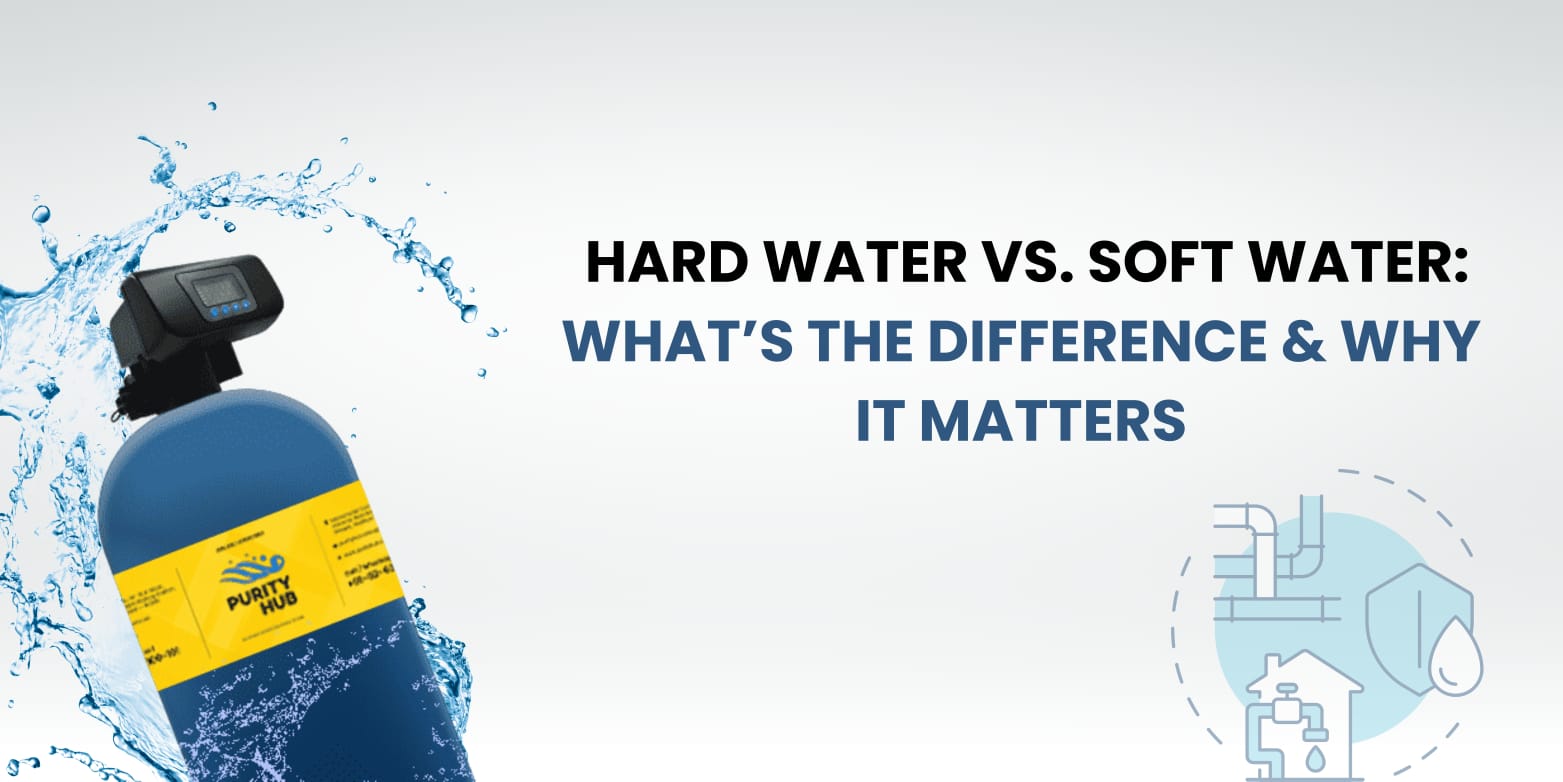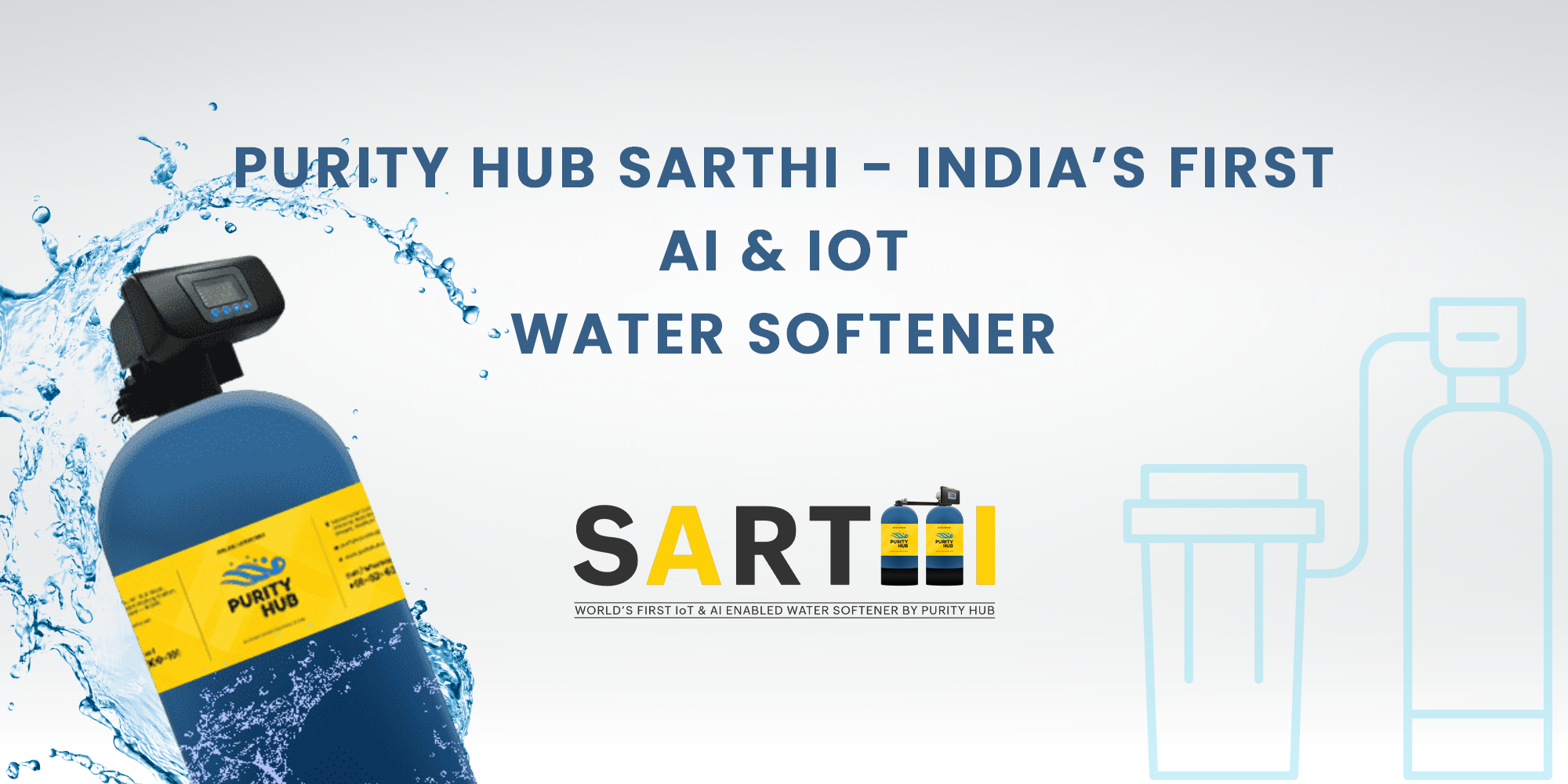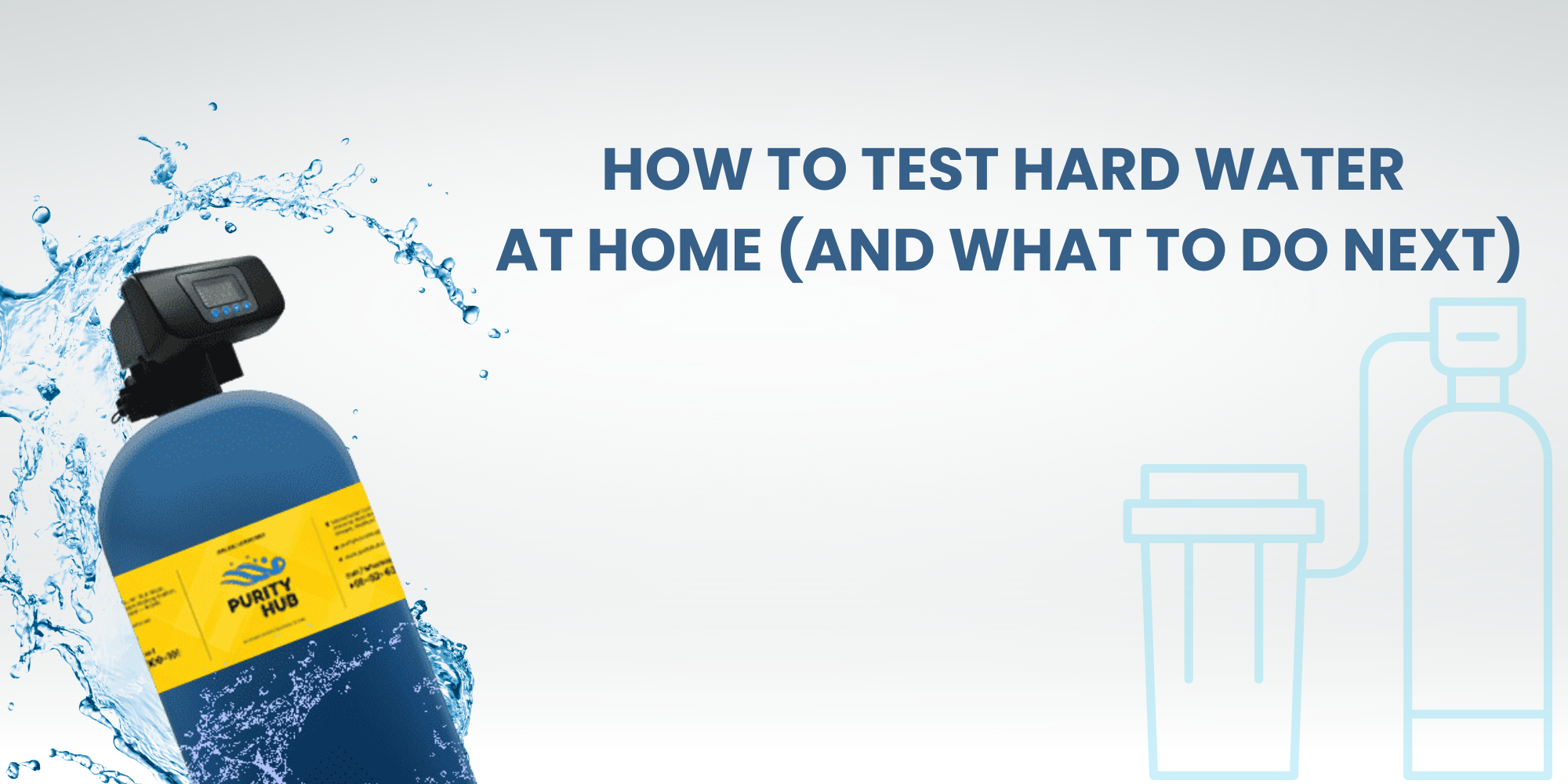
Summary
Hard water contains high levels of minerals like calcium and magnesium, which can lead to issues like dry skin, dull hair, appliance damage, and stubborn soap scum. In contrast, soft water is free from these minerals, making it gentler on your home and body. From easier cleaning to longer-lasting appliances, the benefits of soft water are hard to ignore. A home water softener or whole home water softener can help eliminate these mineral troubles. These systems also often include hard water filtration for cleaner, healthier water. If you're noticing signs like scale buildup or stiff laundry, it might be time to consider a water softener for house use. In the long run, soft water leads to a more comfortable, efficient home.
Ever noticed those annoying white spots on your dishes even after washing them thoroughly? Or maybe your hair feels dry and rough no matter how many conditioners you use? Welcome to the world of hard water – the sneaky culprit hiding in plain sight. But don't worry, we’ve got the lowdown on hard water, soft water, and why your home might be begging for a good home water softener. So, grab your favorite drink and let’s break this down in the most unboring way possible.
What Exactly is Hard Water?
Let’s keep it simple. Hard water is basically water that contains high amounts of dissolved minerals – mainly calcium and magnesium. These minerals are naturally picked up as water flows through limestone, chalk, or gypsum deposits. While hard water isn’t harmful to drink, it can be a pain when it comes to cleaning, plumbing, and even your skin and hair.
It’s like nature decided to give your water a little “extra” – but in this case, extra isn’t always better. That cloudy film on your glassware? That’s calcium residue. The soap that just won’t lather? You can thank the minerals in hard water for that too. Over time, the build-up from hard water can even clog pipes and reduce the efficiency of your appliances.
Meet Soft Water – The Chill Sibling
On the other hand, soft water is basically hard water’s more laid-back sibling. It’s water that has been treated to remove most of those pesky minerals. This usually happens through a process called ion exchange (sounds fancy, but we’ll leave the science for another day), and the result is water that’s more gentle on your home, your skin, and your sanity.
Soft water makes cleaning easier, helps your shampoo and soap actually do their job, and even extends the life of your washing machine and water heater. It’s like your home suddenly decided to go on a spa retreat.
The Not-So-Obvious Effects of Hard Water in Daily Life
So you might be wondering, “Is hard water really that bad?” Let’s break it down in real-life terms:
Laundry Woes: Hard water can make your clothes feel stiff and faded. It reacts with detergent, making it less effective.
Appliance Agony: Hard water buildup can seriously shorten the lifespan of dishwashers, water heaters, and washing machines.
Dry Skin Drama: Those same minerals can strip moisture from your skin and hair, leaving you itchy, dry, and wondering why that expensive moisturizer isn’t working.
Pipe Problems: Mineral buildup, also called scale, can clog pipes over time, causing lower water pressure and potential plumbing nightmares.
Spotty Situations: Dishes, glassware, and even your shower doors may end up covered in white spots and soap scum.
Why a Water Softener Might Be Your New Best Friend
If any of the above issues sound familiar, it might be time to consider a water softener for house needs. A whole home water softener doesn’t just treat the water you drink – it works its magic throughout your entire plumbing system.
By removing excess calcium and magnesium, a hard water softener ensures smoother skin, shinier hair, and a longer life for your appliances. It's basically the equivalent of upgrading from basic cable to streaming on a smart TV – once you make the switch, you wonder how you ever lived without it.
There are even systems that combine softening with hard water filtration, which means you’re not just softening your water – you’re also getting rid of chlorine, sediment, and other impurities. A water filter for hard water can be a game-changer, especially if you’re in an area with particularly rough water conditions.
How to Know If You Need One
Still unsure if you need a home water softener? Here are a few signs:
Your soaps and shampoos don’t lather well
You see white scale buildup on faucets or shower heads
Laundry comes out feeling stiff or scratchy
You’ve had to repair or replace water-using appliances more often than expected
Your skin and hair feel dry, even with good products
If any of that rings a bell, it's worth testing your water or contacting a professional to evaluate your home’s water hardness.
Conclusion : Soft Water = Happier Home
In the grand battle of hard water vs. soft water, soft water comes out as the clear winner for household comfort and longevity. Hard water might not be harmful to drink, but it can cause a ton of headaches in other areas of your life. Investing in a quality whole home water softener or even just a reliable water filter for hard water can save you money, time, and a whole lot of frustration.
Whether you’re upgrading for health, convenience, or just to get rid of those stubborn shower spots, a hard water softener is one of the best gifts you can give your home. Because when your water’s happy, you’ll be too.



